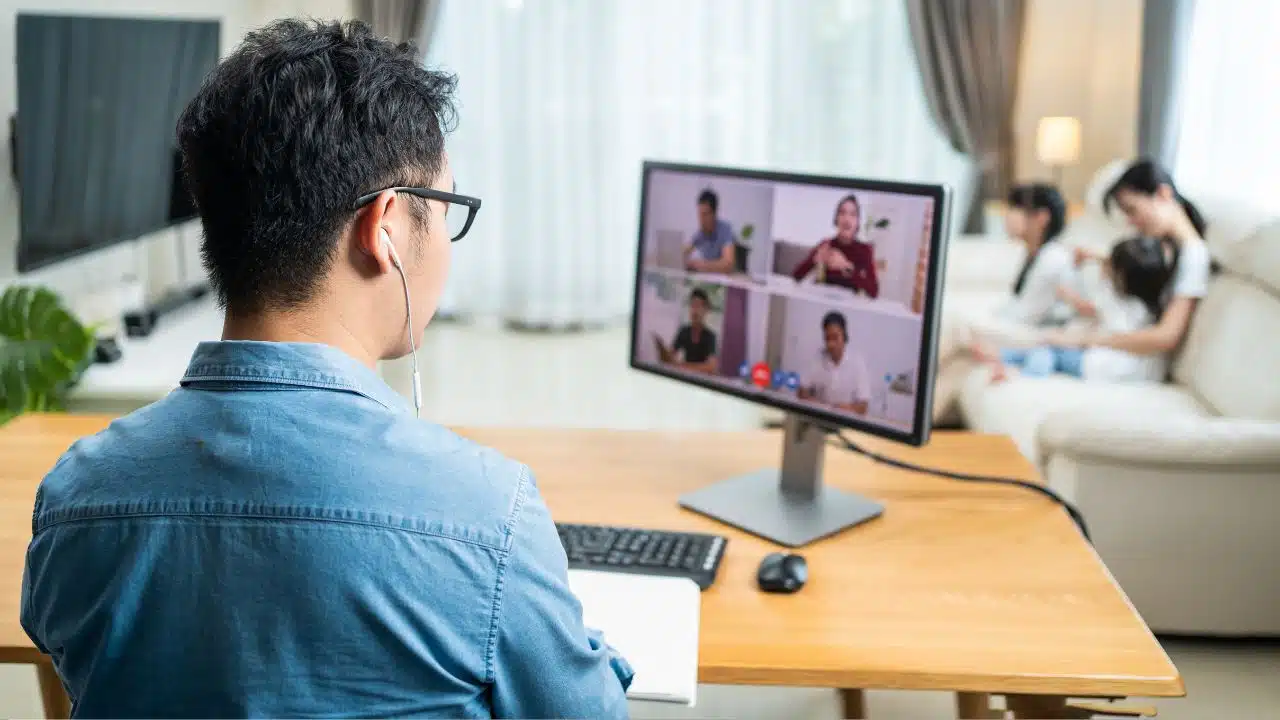Remote jobs are great, aren’t they? You can work from home, the beach, a secluded cabin in the woods – anywhere, really. But the freedom of working remotely can be bad for your productivity. It’s easy to be a little lazy or get distracted by our adorable pets or that pile of laundry.
With a little self-discipline, you can work efficiently from wherever you are.
Having self-discipline means you can focus on your work, make progress with your goals, become more resilient and adaptable, and feel less anxious. Plus, you can reap the benefits of producing better work – a raise, more autonomy, or better projects, perhaps?
The following small habits will help you overcome procrastination and teach you to be more in control when working from home.
1. Make a Plan

No one wants to break a promise to themselves. Making a list of tasks for the day is how we commit ourselves. Write down your to-do list, rate the complexity, and prioritize them. Then, all you need to do is stick to that plan.
Estimate the time for each task and try to complete it within that time, but leave yourself a buffer, too. You never know when something will take longer than you thought or if you have to deal with a slow internet connection.
Depending on your schedule and job cycles, you can plan by day, week, quarter, or month – or maybe a little of each.
2. Create a Habit of Self-Discipline

Self-discipline is a habit or series of habits, really. Discipline training is like muscle training; the important thing is whether you have enough perseverance. Doing a little each day will add up.
These routines are not complicated at all. It could be eating healthy, exercising for 30 minutes a day, getting up early, reading a book before bed, etc.
3. Use Technology

When working from home, it can be tempting to close your laptop and catch up on the latest episode of your favorite show. But you can also use technology to help you eliminate those temptations and practice discipline.
Besides functions such as the calendar, note-taking apps, and reminders, you can do a lot with your phone and computer. Use website blockers or time-tracking monitors to keep on track. Make a work and a personal profile on your computer to separate them. Set up shortcuts, such as auto email replies, calculations in spreadsheets, or a get a programable keypad.
Many applications and software programs also help you manage your expenses or organize your records.
4. Concentrate

No one can concentrate if their phone dings every 5 minutes. These notifications are mostly spam emails, notifications from social networks, and other things that can wait. Don’t waste your precious time on unimportant things like this!
If you want to focus on work, turn off your phone, close those extra tabs in your browser, move somewhere quiet, and let your family know you’re working so you don’t have to be interrupted.
And don’t try to do too many things at once; it won’t work. Go back to that to-do list and address one thing at a time.
5. Set Clear Goals

To learn discipline, you should define long-term goals for your work and outline specific steps for the future. The more detailed your plan, the clearer your path will be. As a result, you will not hesitate, confuse, or even disorient yourself.
For example, a freelance writer’s long-term goal might be to increase their income by landing higher-paying clients and expanding their portfolio. To achieve this, they could create a detailed plan that includes specific targets, such as writing and submitting three articles per week to reputable publications and learning new skills by dedicating two hours every week to taking an online course.
6. Don’t Overlook Small Accomplishments

Accomplishing small goals is just as important as big ones. Answering three important emails is better than not answering any. Creating a draft or outline instead of procrastinating still gets you closer to the final product.
Adding small tasks to your to-do list is actually a great idea. You’ll be able to finish a bunch of things in only a few minutes, motivating you to achieve more and keep going. So be patient with yourself, try not to get frustrated with the process, and take it one step at a time.
7. Remind Yourself Why You Started

Why do you want to improve yourself? What made you start worrying about your tenacity and diligence?
Regularly remind yourself of the power of self-discipline. Just imagine how wonderful it would be to take full control of your life, accomplish any particular goal you’ve set, and still have time for yourself. You can make that happen!
8. Eat the Frog First

This expression is a rather memorable way to say, “Do the worst thing first.” The idea is that getting your most dreaded task out of the way will make the rest of your day much better. On the other hand, if you keep putting it off, your day is going to suck because it’s looming over you.
9. Find Your Flow

Are you a morning person, or do you need 3 cups of coffee to get going? Is the house empty between 9 am and 2 pm? Do you need to tidy the kitchen before logging on?
Whatever flow your day and mental energy has, use that to your advantage – don’t try to force it. Self-discipline can help you tap into your natural rhythms, making your day easier to navigate.
It will also help you attune to your surroundings so you’re not on Zoom calls when the kids get home from school or while the dryer is running.
10. Rest

Of course, discipline doesn’t mean sitting in a room glued to a computer all day. Rest is also part of discipline – a very important part.
Make it a habit to step away from the computer screen every hour. Get some water, move your body, and stop looking at a screen to rest your eyes. You are still entitled to take breaks, just as you would if were in an office.
11. Don’t Do Work After Work

Sometimes, working from home makes you feel like you should always be working. I mean, the computer is right there… Plus, sending this email will only take a minute, so you might as well do it now, right?
We tell ourselves that if we put in a little overtime to complete this task, we can take it easy tomorrow. But do we?
Self-discipline, especially when working from home, means separating work and life – which isn’t easy. But if you set and follow boundaries, you will be more productive and less stressed, and work won’t take over your home. If that’s not a testament to your commitment to self-improvement, what is?
11. Enjoy the Process

Don’t be too constrained by the word “discipline.” Do things that keep you in a good mood. Going for a walk, cooking, and meeting friends are good ways to promote creativity, whether you work in an office building downtown or in your backyard. But aren’t you glad you can take those creativity-boosting breaks in your pajamas when you’re at home?
Self-discipline isn’t about rigid rules or chaining yourself to a desk; it’s about unlocking the freedom to thrive wherever you work. So, embrace these strategies, stay focused but flexible, and enjoy all the perks of working from home.
Signs Your Home Office Sucks

A bad home office will only make it harder to get your work done. You need to set up your home office for success. Watch out for these 6 signs your home office sucks (and how to fix it).
How to Manage Stress When Burning Out

Working remotely doesn’t mean working stress-free. Some jobs are just more stress-inducing than others. If you are burning out at work, use these strategies to reduce stress. And remember, your health is more important than your job.
Amanda Kay, the founder of My Life, I Guess, provides valuable career advice and support for anyone striving to make a living and, more importantly, make a life. Whether it's navigating job searches, learning new skills, overcoming unemployment, or dealing with debt, My Life, I Guess has been a go-to resource for career guidance and financial stability since 2013. Amanda's expertise and relatable approach have been featured in trusted publications such as MSN, Credit.com, Yahoo! Finance, the Ladders and Fairygodboss.
